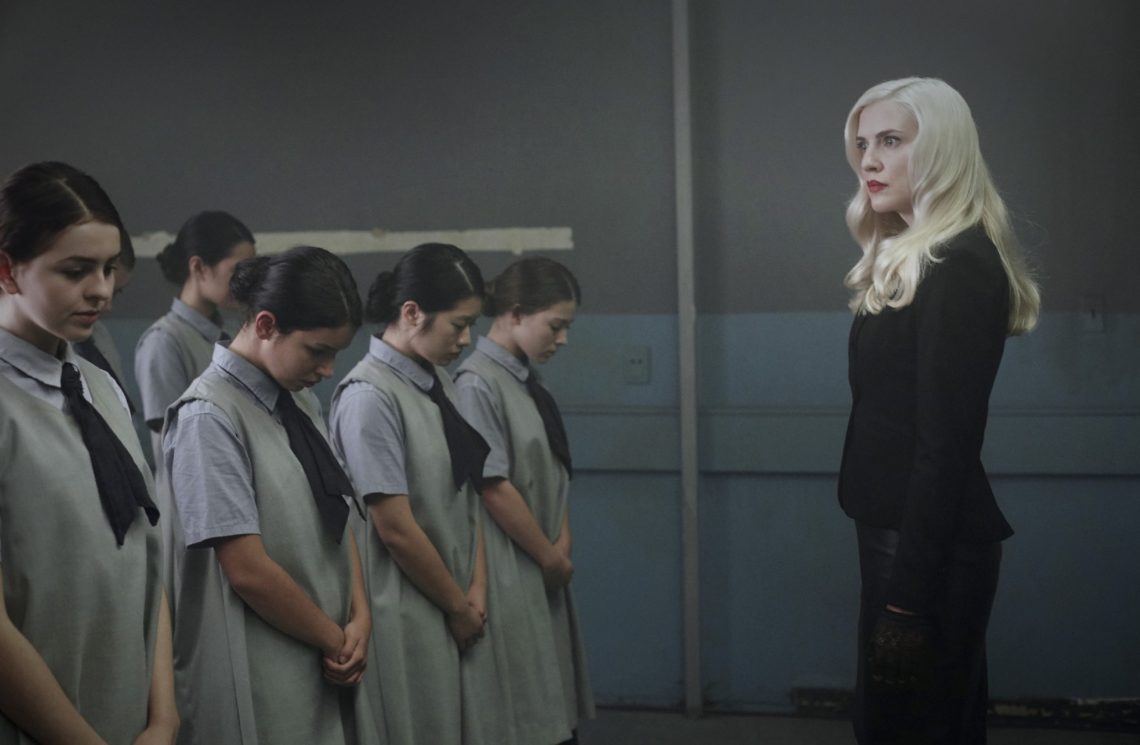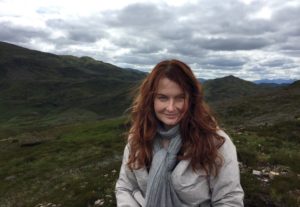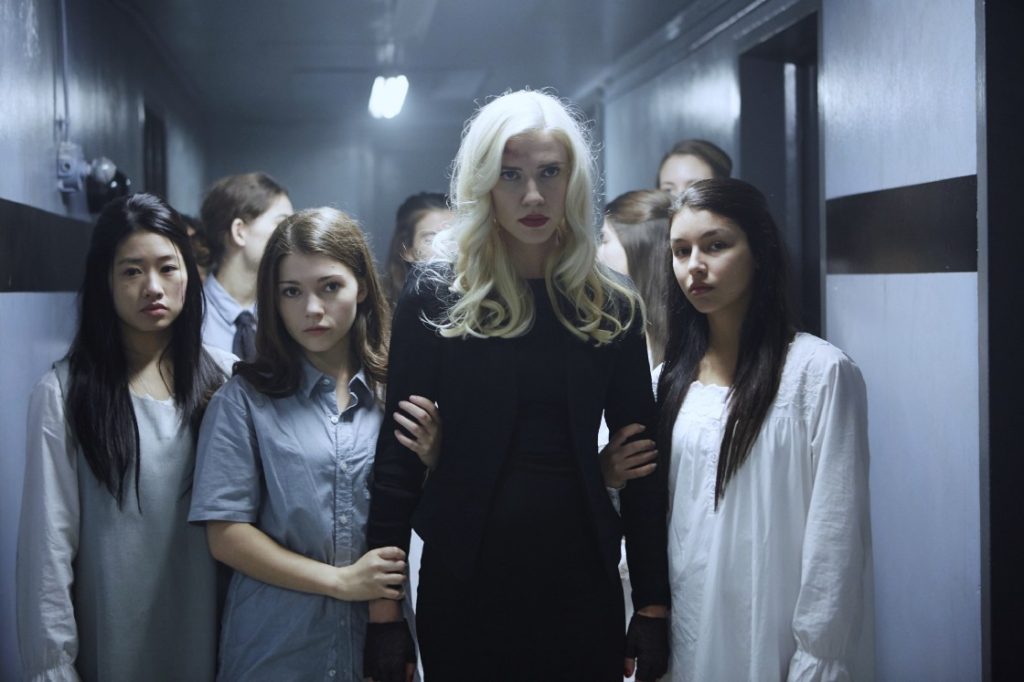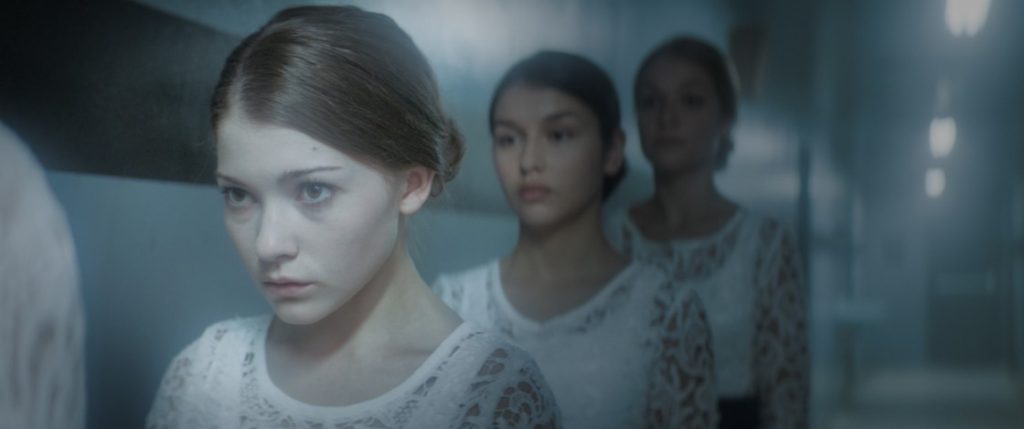
Level 16 Interview: Danishka Esterhazy
“Working in the film industry, I see discrimination every day. Women apply for film gigs — but men with half their training and achievements get the job. When women do get hired as directors — it is only on low-budget films with so many limitations on time and productions tools that they can’t make films to compete on an international level.”
The Vestalis Academy is a boarding school unlike any other.
With no natural light, a rigorous skincare regiment and obedience training, the young girls stationed here are awaiting the day they find their perfect home.
LEVEL 16 explores this world through the eyes of Vivien (Katie Douglas) and Sophia (Celina Martin), former friends who wind up back together in their last year at Vestalis, the year of their sixteenth birthday.
As the fantasy of adoption starts to fade, the girls are set on a new adventure — one that will change their lives forever.
Discover a world where nothing is as it seems, where obedience and ignorance are praised and where kindness is mistaken for honesty. With powerful performances by the cast, LEVEL 16 is a thrilling journey that shines a light on the way society treats young women.
 Director Danishka Esterhazy is a graduate of the Directors’ Lab at the Canadian Film Centre and the Talent Lab at the Toronto International Film Festival. Her debut feature, Black Field, won the Best Feature Drama award at Vancouver’s Women in Film Festival and the Best Canadian Feature award at Toronto’s Female Eye Film Festival. Esterhazy is a recipient of the prestigious Kodak New Vision Award (awarded by Women in Film and Television Toronto) and winner of the inaugural Amazon Video Filmmaker Award at Sundance 2017.
Director Danishka Esterhazy is a graduate of the Directors’ Lab at the Canadian Film Centre and the Talent Lab at the Toronto International Film Festival. Her debut feature, Black Field, won the Best Feature Drama award at Vancouver’s Women in Film Festival and the Best Canadian Feature award at Toronto’s Female Eye Film Festival. Esterhazy is a recipient of the prestigious Kodak New Vision Award (awarded by Women in Film and Television Toronto) and winner of the inaugural Amazon Video Filmmaker Award at Sundance 2017.
LEVEL 16 is in theatres in Canada beginning March 15th.
Tell us a little bit about yourself and how you got involved with filmmaking.
Danishka Esterhazy: I started by making short films as a member of an artist co-op called the Winnipeg Film Group. Then, I got a job on set as a Director’s Assistant and learned the ropes of the film industry by fetching coffee during the day but shooting my own indie films on my days off.
Tell us about Level 16. Where did the idea come from?
DE: I had just graduated from film school in Toronto (the Canadian Film Centre) when I sat down to write my first feature film. This was 2005/2006. I wanted to make science fiction and horror films so I wrote Level 16 to begin that journey. I thought Level 16 would be my first feature. But the project faced so much resistance, and the funding was so difficult to secure, that it ended up being my third feature.
This film, aside from the technology, takes place outside a specific time. Why did you decide to make the time period ambiguous?
DE: I wanted to take the audience on a journey. In my mind, the year is 2020 — so, the very near future. But the world that the “girls” know is so isolated and designed — that the historical references are difficult to sort. I added more and more hints as the story progresses to help the audience gain a general understanding of the period. But, in the first act, I wanted the viewer to share some of the ignorance and confusion that surrounds the girls in their captivity.
Most of the film takes place within a couple of rooms and with almost no natural light. What was this like to film?
DE: It was strange. And, in ways, amusing. When I was shooting my first feature (Black Field) I had to shoot on an isolated Manitoba prairie in early spring when the landscape was muddy and desolate and wet and very cold at night. But I wrote the story to evoke that bleakness. And with Level 16, I wrote a story about captivity and dread and oppression. So, again, I only had myself to blame when I had to inhabit that world for a month of shooting.

There are a lot of themes running through the movie, obedience, forced ignorance, the price of youth. Can you speak about how you used these in conjunction throughout the film?
DE: I wanted to examine how we raise young women — how we rob them of their power. How society applies rules to young women that discourage independence, free thought, leadership and bravery. I hated high school very much. And I hate the way society rewards women’s beauty and docility above all other achievements. So, this story gave me some opportunities to strike back.
Can you tell us about some/all of the other amazing women who worked on this film?
DE: So many amazing women! My producer, Judy Holm, is a superhero. She took my script all over the world and tirelessly fought to raise the money. Even when we faced rejection again and again. She never gave up fighting for this story.
My Production Designer Diana Magnus and my Costume Designer Jennifer Stroud were incredible creative partners. Both artists in their own right.
And my cast — such an incredible group of talented women. Katie, Celina, Sara, Sheila McCarthy, all the “Rose Hall Girls” — every day they impressed me, surprised me, inspired me.
Tell us about why you are a feminist and why it’s important to your filmmaking.
DE: I can’t imagine not being a feminist. I can’t imagine not yearning for and fighting for, full equality as a woman.
Working in the film industry, I see discrimination every day. Women apply for film gigs — but men with half their training and achievements get the job. When women do get hired as directors — it is only on low-budget films with so many limitations on time and productions tools that they can’t make films to compete on an international level. Male directors fail, harass, don’t even show up for work — and continue to land high profile films with huge budgets. It is messed up.
Who are your favourite women working in the film industry?
DE: I am a big fan of Jane Campion, Jennifer Kent, Debra Granik and Sofia Coppola.

What’s the best advice about filmmaking you’ve ever received?
DE: When I was shadowing director John Kent Harrison (a great mentor) he told me: “Always be that last person to say yes.” Such good advice. Don’t let anyone rush you into a decision. On a film set, or anywhere.
What are you working on now/next?
DE: I am currently in South Africa shooting a new horror feature for Warner Bros and Syfy. It is a story inspired by the classic television series The Banana Splits and will be released by the end of this year. I’m having an amazing time! The story is dark and twisted, but also quite funny. The lead is Dani Kind and I’ve also been reunited with Sara Canning and Celina Martin for this shoot.
Finally, recommend one #MUFFApproved film for our blog readers!
DE: I am a big fan of Shelagh Carter’s films. Shelagh is from Winnipeg and she writes/directs beautiful stories. Maria Mealla (from San Francisco) has a new film called Bring me an Avocado that is about to be released. And I love the films of Ingrid Veninger and Nadia Litz.
Keep up to date with Level 16: Facebook | Twitter | Instagram | Website
*This post was originally featured on The MUFF Society.*

